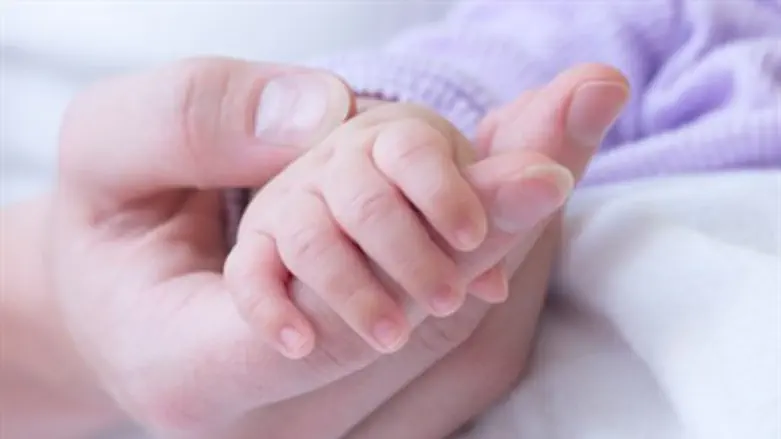
In a series of articles about the “Efrat” organization, Arutz Sheva presents a number of personal stories and anecdotes relating the group's life-saving activities. This week’s article describes the “A Soul for a Soul,” initiative, a very special project run by the “Efrat” organization, as described by Efrat’s own Dr. Eli Schossheim.
“At first, the idea was to enable donors and benefactors to dedicate their funds to saving the life of a child for various reasons, such as in memory of a loved one. Yet, lately the project has received a sort of ‘makeover,’” Dr. Schossheim recounts. He told how women, who had once terminated pregnancies against their will, some due to financial constraints, and others for an entirely different slew of reasons, began to send donations to Efrat.
“They feel compelled to donate to the organization due to a deep sense of regret and pain that has accompanied them ever since they went through with their abortions, and want nothing more than to contribute towards the saving of another child’s life. In this way, these women feel that they are atoning for the acts they committed.”
Dr. Schossheim raised the example of a woman named Esther and her husband, who signed up for a senior citizens trip to visit the graves of righteous Jews. It was not Esther’s first time visiting holy gravesites, but it was the first time she succeeded in convincing her husband, Yitzhak, to join.
As the bus drove towards Meron, Esther kept noticing colorful billboards depicting Rabbi Shimon Bar Yochai, and she kept trying to read the message scrawled at the advertisement’s base, but was never able to reach the sentence’s end. She asked her husband for help, and he responded that if the sign was indeed about Rabbi Shimon Bar Yochai, it would surely be hung at the great rabbi’s grave as well. And so it was.
Esther and Yitzhak arrived in Meron and headed to the grave of Rabbi Shimon Bar Yochai, making a beeline for the billboard in question, which turned out to be an advertisement for the Efrat organization. The sign read: “Three push the Shekhina (Divine presence) from this world… whoever murders his children in the womb of their mother.”
From that moment, Esther could not grasp a hold of herself. “Even without any true reminder, the emotional pain is a constant reminder of my past. But, standing in front of that sign, horrifying memories of the day I terminated my pregnancy overwhelmed me,” Dr. Schossheim recalled Esther saying.
Esther and Yitzhak had four children and lived in a two-room apartment in a poor neighborhood. Yitzhak was unemployed, while Esther worked herself to the bone at a supermarket, sometimes taking on double shifts in an attempt to make ends meet.
“It was hard…” Esther remembered. “Years later, we traveled to Meron to pray for our children, for our grandchildren, for good health… yet I found myself praying and crying for forgiveness for what I had done; for the child I had aborted. To this day, 20 years later, I am still plagued by my actions.”
Upon exiting the gravesite, Yitzhak found his wife an emotional wreck, and asked her what had happened. She reminded him of what he had spent years trying to forget, and no matter what he said or did, Yitzhak could not help his wife regain her composure.
“At the time, we were truly going through a rough patch. I can’t say that the abortion helped us cope; in fact, the opposite is true,” Dr. Schossheim recalled Yitzhak saying. “Of one thing I am sure: if we would have known then about the Efrat organization, we would never have taken that horrible, drastic step. The only thing that was able to calm my wife down was my promise to her to donate to Efrat, so that someone else’s child could be saved.”
Thus, through the “A Soul for a Soul” initiative Esther, Yitzhak and many others have been able to donate to Efrat in what they say is a form of "atonement" for their past actions, which continue to haunt them and fill them with a deep sense of regret.